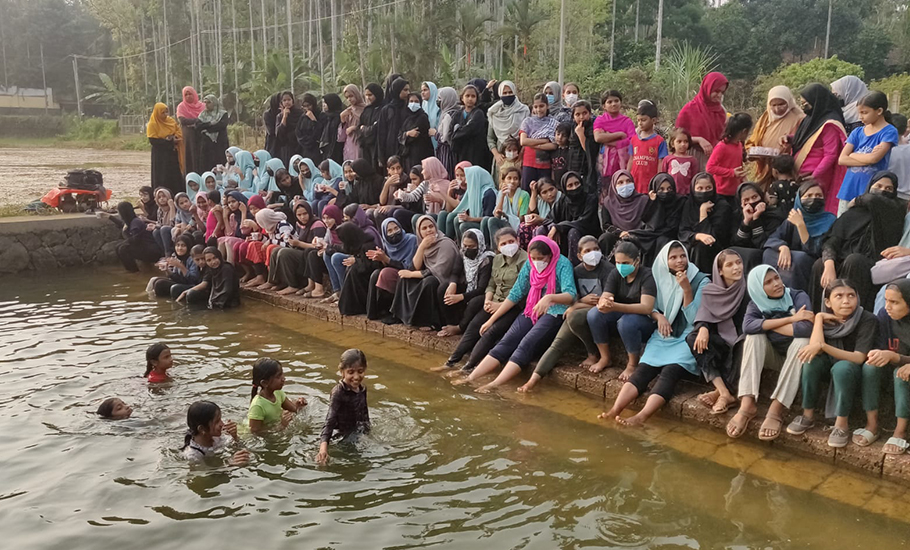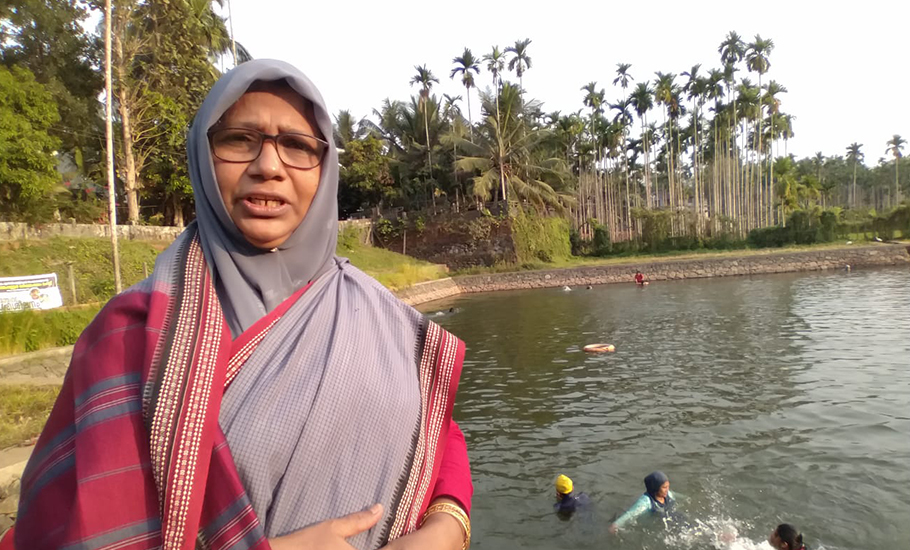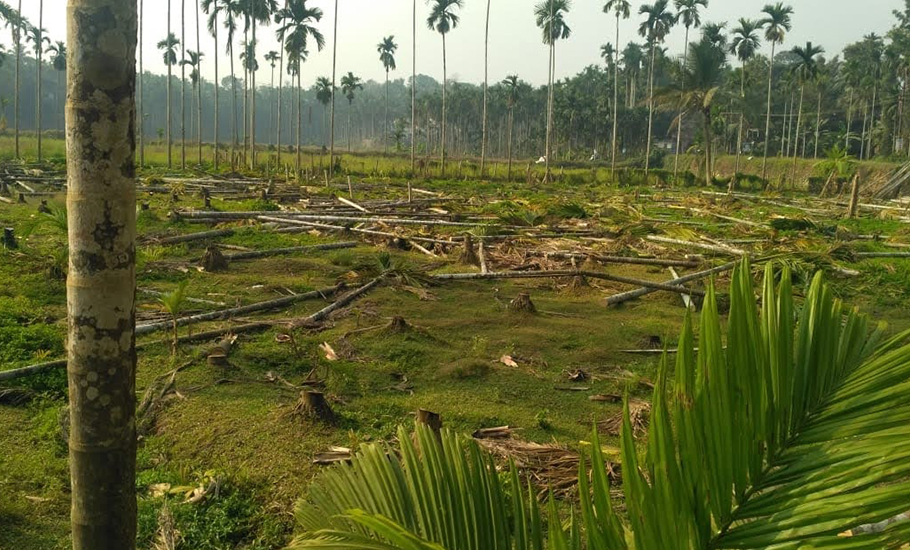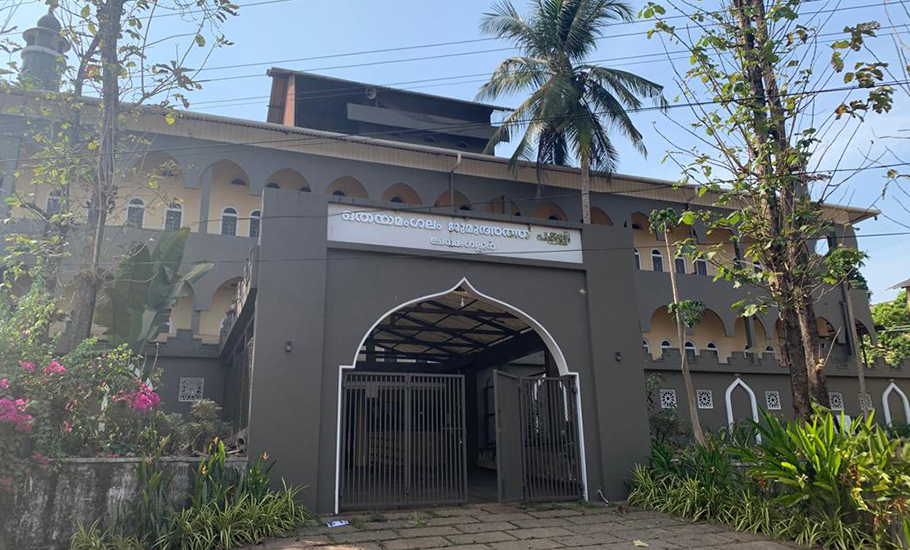
- Home
- India
- World
- Premium
- THE FEDERAL SPECIAL
- Analysis
- States
- Perspective
- Videos
- Sports
- Education
- Entertainment
- Elections
- Features
- Health
- Business
- Series
- In memoriam: Sheikh Mujibur Rahman
- Bishnoi's Men
- NEET TANGLE
- Economy Series
- Earth Day
- Kashmir’s Frozen Turbulence
- India@75
- The legend of Ramjanmabhoomi
- Liberalisation@30
- How to tame a dragon
- Celebrating biodiversity
- Farm Matters
- 50 days of solitude
- Bringing Migrants Home
- Budget 2020
- Jharkhand Votes
- The Federal Investigates
- The Federal Impact
- Vanishing Sand
- Gandhi @ 150
- Andhra Today
- Field report
- Operation Gulmarg
- Pandemic @1 Mn in India
- The Federal Year-End
- The Zero Year
- Science
- Brand studio
- Newsletter
- Elections 2024
- Events
- Home
- IndiaIndia
- World
- Analysis
- StatesStates
- PerspectivePerspective
- VideosVideos
- Sports
- Education
- Entertainment
- ElectionsElections
- Features
- Health
- BusinessBusiness
- Premium
- Loading...
Premium - Events

Why a Kerala mosque is teaching girls how to swim

On February 15, four-year-old Manal Shadiya took a deep breath in a bid to get enough oxygen to her lungs, ran a short distance and jumped into the local pond. As little Shadiya swam effortlessly, having taken the plunge, numerous hopeful eyes had their gaze pinned on her in Chendamangalloor, an urbanised village in Kerala’s Kozhikode. With her plunge into the pool, little Shadiya set...
On February 15, four-year-old Manal Shadiya took a deep breath in a bid to get enough oxygen to her lungs, ran a short distance and jumped into the local pond. As little Shadiya swam effortlessly, having taken the plunge, numerous hopeful eyes had their gaze pinned on her in Chendamangalloor, an urbanised village in Kerala’s Kozhikode.
With her plunge into the pool, little Shadiya set into motion swimming classes for schoolgirls in her village. The classes will be free for all girls in the locality but are meant especially for girls in class 10 because knowing swimming and cycling get students bonus points for admissions to class 12.
While students pursue different life skills in Kerala, including swimming, for bonus marks, the classes being offered in Chendamangalloor are unique as they are organised by the Othayamangalam Juma Masjid. The century-old mosque is lot more than just a place of worship as it has been the centre of socio-cultural and developmental activities for decades, the latter being taken care by the mosque’s Mohalla Committee.
Even though the class is being run by a mosque, religion is no bar for those wanting to join. The organisers, however, give priority to students who are in 10th standard because they require a certificate for admission to class 12.
The Mohalla Committee, which included 15 elected members, is unique in many other aspects too. It is the only mosque in Kerala that includes women in the administrative committee. “There are three women members in the committee. We are all elected by due process. The members of the mohalla are the voters. This is an opportunity for giving more attention to the problems being faced by women here,” says Meharunnisa, one of the three members of the Mohalla Committee.

The socio-cultural activities that the masjid takes care of include a wide range of programmes from helping farmers with agricultural production, environmental protection to providing economic support to the needy. The financial help is extended to those wanting to build houses, or those who need support to fund their children’s education, or pay medical bills. The help is extended to all villagers irrespective of religion.
The masjid that serves as the place of worship for people in five wards in Mukkam Municipality covers a population 2,250 families. Nearly 80 per cent of the people in Chendamangalloor are Muslims, while the rest are Hindus. All adult family members have voting rights to elect the Mohalla Committee.
With a large expat population working in Gulf Cooperation Council (GCC) countries, Chendamangalloor is not a poverty-stricken village. The mosque receives a decent amount as zakaat, an amount of money that is mandatorily paid as donation under Islam towards charitable causes. The committee ensures this money is used for the welfare of the needy.
“Compared to Muslims, the Hindu minority is economically weaker here. In effect more than 60 per cent of the funds are being used for the non-Muslim communities, especially Dalits,” says Subair Kodappana, former president of the Mohalla Committee.
People in the village vouch for the good work being done by the mosque.
“Many people like me get boundless support from the masjid. My son lost his eyesight and was in need of surgery. We got all the support from the masjid,” Anil Kumar, an auto-driver who lives in Chendamangalloor, told The Federal.
Kumar recollects how he had been supported while renovating his house. “Our house was in a shambles. They also supported us in reconstructing it.”
Grameenam: reclaiming paddy and strengthening organic farming
Over the last few decades, farmers of Chendamangalloor were largely giving up on paddy cultivation and turning to crops such as banana and arecanut. The heavy use of pesticides and fertilisers for the new crops adversely impacted the soil quality. To address the problem, the committee launched a campaign.
“Even the groundwater got contaminated. So we decided to launch a campaign,” says Kodappana.
Grameenam, an agricultural festival to reclaim paddy and encourage farmers to go back to organic cultivation, was kicked off in 2016. “It was not easy. There were door-to-door campaigns. People were very reluctant because paddy farming was not a lucrative affair. We had even raised funds to compensate the farmers to withdraw from banana and arecanut,” Kodappana told The Federal.
Despite the difficulties, the campaign yielded desired results. Hundreds of acres of agricultural land went back to paddy farming. The change is visible while traveling through the village. Both sides of the road are flanked by lush green paddy with tiny streams in between.

To encourage healthy farming practices, the Mohalla Committee also organises Onam Celebration. “To celebrate Onam, we organise competitions and games in wetlands. Everyone is exposed to soil and a lot of fun,” informs Kodappana.
Othayamangalam Juma Masjid: A long tradition of inclusivity
The Othayamangalam Masjid was established in 1900 according to the historians. Even before the establishment of the mosque, there are historical references that point to the existence of a Gurukul system of education within the Muslim community. Interestingly, the historical texts refer to a woman who took the initiative to provide spiritual lessons to the young generation.
“The first school for spiritual education was started by a woman, Ennathathil Ummachikkutty. She taught the children to read and recite Quran. Many of the prominent Muslim scholars who played a pivotal role in the early renaissance movement in the beginning of the 20th century, were her disciples,” says PT Kunjali, a retired school teacher who has written the local history of Chendamangalam, which was published in a village souvenir in 2016.
A madrassa was converted into an elementary school in 1926, providing the region the first institution for modern education. According to Kunjali, the commitment and passion of the Muslim scholars in Chendamangalam for modern education laid the foundations of social empowerment of the community.
The Othayamangalam Juma Masjid has been secular for as long as it has existed. According to the local history written by Kunjali, the first body cremated in the burial ground of the mosque was an unidentified one. “In early 1900, a man who came to the village from a neighbouring village collapsed and died. The villagers waited till dusk anticipating someone would come in search of him. As nobody turned up, the body was cremated in the burial ground of the mosque,” writes Kunjali. “The religion of the first ever man who was cremated in the burial place of the mosque was not known,” he told The Federal.
Empowerment through migration
Raising funds for any development or philanthropic activity is not a challenge for the mosque. “There are a large number of people from Chendamangalloor working abroad. There is a minimum of hundred people working in QatarEnergy only,” says Mohemmad Abdul Rahman, the current president of the committee who is a retired higher secondary teacher.
“The expats generously donate to the masjid for any activity. Apart from the formal annual zakaah contribution, a lot of people extend support whenever someone is in need.” Nasirudeen Chendamangalloor, an IT professional who works in a US-based company, told The Federal.
The Chendamangalloor community overrides not just the communal divisions but also political divides.
The Communist Party of India (Marxist), Muslim League, Congress and Welfare Party, the political outfit of Jamaath-e-Islami are the major political forces in the area. The Mukkam Municipality is run by the CPI(M) in which Welfare Party holds sway over three wards. People of all three wards held by Welfare Party pray at Othayamangalam Juma Masjid. Political rivalries, however, take a backseat when Juma Masjid takes initiatives for a development or humanitarian cause.
“They talk to us and incorporate our suggestions whenever they undertake a social activity,” says Jijesh, branch secretary of CPI(M). Even though CPI(M) and Welfare Party are political rivals that rivalry is not reflected when it comes to any collective action initiated by the mosque. Jijesh also vouches for the secular credentials of the mosque. “The Hindu community is relatively economically backward, especially the Dalits. The Mohalla Committee has always been extending support to the needy especially the Hindus.”

The century-old Othayamangalam Juma Masjid is lot more than just a place of worship. It has been the centre of socio-cultural and developmental activities for decades.
The girls and women who came for swimming to the local pond say they are united but do not agree on politics all the time. “We talk politics and disagree with each other,” Haritha, a former ward councillor and a member of CPI(M) told The Federal.
The women members of the Mohalla Committee, including Meharunnisa, are her close friends but none of them compromise when it comes to politics. Though Meharunnisa supports Welfare Party, CPI(M) is not an alien idea to her as there are several members in her family who are active comrades too.
The mosque through its work has done a remarkable job in bringing and keeping everyone together.
